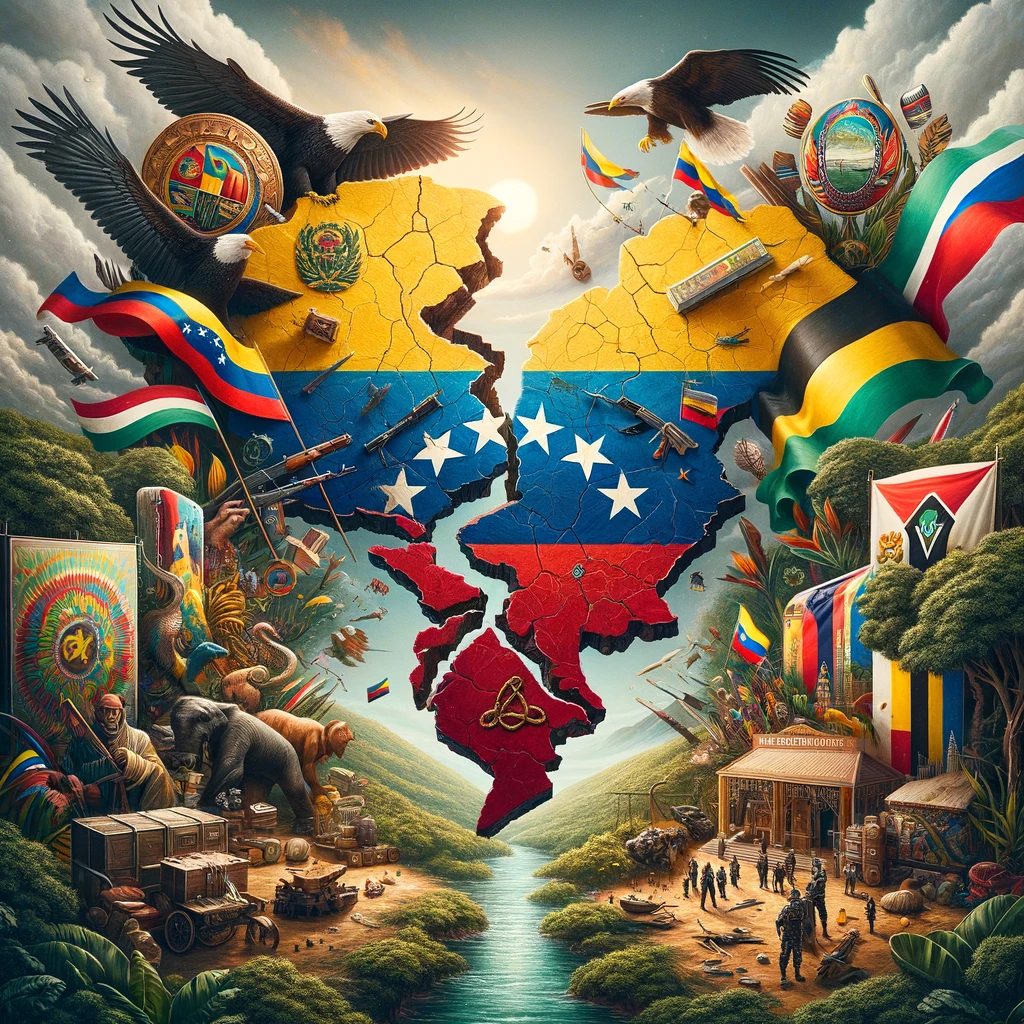
The recent escalation of tensions between Venezuela and Guyana around the Essequibo region reignites a territorial dispute that, despite centuries of existence, continues to be a critical element in relations between these two South American countries. This article seeks to analyze the importance of considering historical issues in understanding and resolving this conflict, offering a comprehensive view on the present and future implications of this impasse.
The origin of this conflict dates back to the colonial period, when borders were often determined by the reach of European empires, in this case, the British and the Spanish. The Essequibo region, rich in natural resources, has become the subject of dispute since colonial boundaries were imprecisely defined. A Venezuela, heiress of Spanish claims, and Guyana, then British colony, inherited this legacy of uncertainty and territorial dispute.
The decision to 1899, which granted most of the disputed territory to British Guiana, was not accepted by Venezuela, who considered it unfair and influenced by colonial interests. This background is crucial to understanding current Venezuelan demands: they do not emerge in a vacuum, but rather from a deep historical context, where the perception of injustice and imbalance still resonates.
The importance of historical issues in the discussion about territories is not limited to the legitimacy of claims, but also extends to the social and political impact within the countries involved. For many Venezuelans, the Essequibo claim is a matter of national pride and reaffirmation of sovereignty, while to Guyana, maintaining the territory is seen as a defense of its territorial integrity and post-colonial independence.
It is essential to recognize that, while territorial disputes are often viewed through a geopolitical or resource lens, they are also deeply rooted in historical and identity narratives. Resolving this conflict requires, therefore, not just a diplomatic and legal approach, but also a sensitivity to the historical narratives that shape the perceptions and attitudes of those involved.
The international community has a crucial role to play, not just as a mediator, but also as a voice that recognizes historical complexity and encourages dialogue that takes into account all facets of the conflict. The recent discovery of oil in the waters near Essequibo adds a new dimension to the conflict, highlighting the need for a resolution that is fair, sustainable and aware of the past.
While the future of this dispute remains uncertain, one thing is clear: Ignoring the historical roots of the conflict will only serve to perpetuate the impasse. It is essential that both nations, together with the international community, work together to find a solution that not only resolves the territorial conflict, but also reconcile the stories and identities that define you.
In short, The case of the territorial dispute between Venezuela and Guyana is a vivid reminder that borders are more than lines on a map; are testimonies of a shared history, often complex and contentious. Learn from this story, respecting it and integrating it into current discussions is not just a matter of justice, but a crucial step towards peace and mutual understanding.
References:
- Little finger, W. (2000). “Local History/Global History: Coloniality, Subaltern Knowledge and Liminal Thought”. Duke University Press.
- Kohn, M. (2013). “The dispute between Venezuela and Guyana: Colonialism, Borders and Nationalism in the 19th Century”. Journal of Latin American Studies, 45(2), 351-378.
- OAS (Organization of American States). (2017). “Report on the Essequibo Question”. Official OAS Documents.
